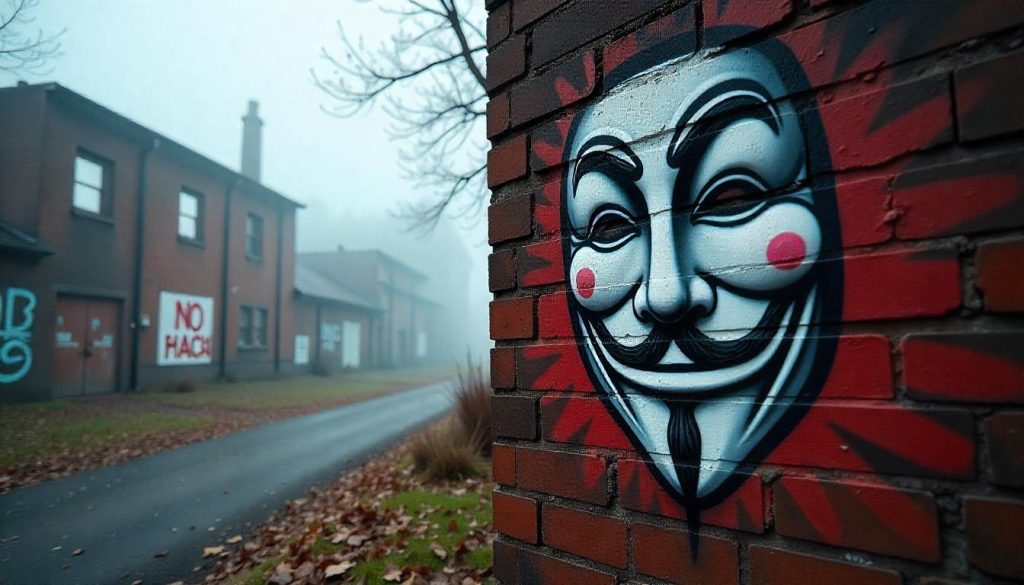When people talk about digital activism, the name Anonymous often rises to the surface. The hacktivist collective is known for its masked figures, powerful cyberattacks, and defiance of oppressive regimes. But one operation in particular — Operation Tunisia — marked a turning point, not just for Anonymous but for an entire nation. So, what is Operation Tunisia, and why is it still talked about today? Let’s break it down in simple terms — with real human context — so you understand what really happened.

The Backdrop: Tunisia Before the Revolution
To understand Operation Tunisia, you need to know what Tunisia was like before it started. Before 2011, Tunisia was under the tight control of President Zine El Abidine Ben Ali, who ruled with an iron fist. Although the country had beautiful landscapes and a growing tourist industry, its people were living under heavy censorship, widespread unemployment, and constant fear of government surveillance. Freedom of speech was almost nonexistent. Social media, websites, and online forums were either banned or closely monitored. And then something happened. In December 2010, Mohamed Bouazizi, a street vendor, set himself on fire after being harassed by police. His tragic act of protest lit the spark for what would become the Tunisian Revolution — and even the broader Arab Spring.
Enter Anonymous: The Start of Operation Tunisia
When images and videos of protests and government crackdowns started leaking online, Anonymous took notice. The group, made up of decentralized hackers and digital activists, saw an opportunity to fight for freedom — not just with words, but with actions. Operation Tunisia, launched in January 2011, was their response. The mission was simple but powerful: to support Tunisian protesters by fighting back against government censorship and surveillance. Anonymous didn’t carry guns or flags. Instead, they used computers, code, and the internet to make their mark.
What Did Anonymous Do in Operation Tunisia?
During Operation Tunisia, Anonymous did what they do best — they targeted websites, took down platforms, and exposed government actions. Here’s a breakdown of their major actions:
1. DDoS Attacks
They launched Distributed Denial of Service (DDoS) attacks on several Tunisian government websites. These attacks overwhelmed the servers, causing the sites to crash or become inaccessible. Among the targets were:
-
The Prime Minister’s website
-
Ministry of Industry
-
Ministry of Foreign Affairs
The goal wasn’t to destroy data — it was to send a message: “We see what you’re doing, and we’re not okay with it.”
2. Educating the People
Anonymous didn’t just attack they also shared tools that allowed Tunisians to bypass government censorship. They spread VPN services, proxy servers, and browser extensions to help people stay connected and speak freely online. In a way, they became digital freedom fighters, equipping the average person with the tools to fight back.
3. Exposing Government Surveillance
At the time, the Tunisian government had been using spyware to steal login credentials and track online conversations. Anonymous exposed these tactics, raising awareness both inside and outside the country. They warned people not to log into Facebook or Gmail without protection. This helped reduce the number of arrests and detentions based on online activity.
Why Operation Tunisia Mattered
You might be wondering — Did it work? Did Anonymous really make a difference? In short, yes. Operation Tunisia wasn’t the only factor behind the revolution, but it amplified the people’s voice and protected their digital rights at a critical moment. Just ten days after Operation Tunisia started, President Ben Ali fled the country. It was a historic moment. For the first time in decades, the Tunisian people were free to speak and hope for a better future. Anonymous had struck a blow, not with violence, but with visibility.
Operation Tunisia’s Role in the Arab Spring
Tunisia’s revolution inspired similar uprisings in Egypt, Libya, Yemen, and Syria. Operation Tunisia showed the world that cyberactivism could be just as powerful as street protests. It set the tone for future Anonymous operations in other parts of the Middle East. The movement made it clear: When people are silenced, we will speak for them. It also highlighted how internet freedom is not just a technical issue, it’s a human rights issue.
Controversy and Criticism
Like most Anonymous operations, not everyone saw Operation Tunisia as a success. Some critics argue that cyberattacks are illegal and may do more harm than good. There’s always a fine line between activism and chaos. But for many Tunisians, Anonymous was a symbol of solidarity and empowerment during a time of fear and uncertainty. It also sparked discussions globally about digital privacy, state surveillance, and the ethical boundaries of cyberactivism.
The Legacy of Operation Tunisia
More than a decade later, Operation Tunisia is remembered as one of Anonymous most impactful missions. It:
-
Supported a real revolution.
-
Helped people fight online censorship.
-
Proved the power of global digital solidarity.
It also reshaped the way people view the internet no longer just a place for cat videos and memes, but a battleground for freedom and democracy. Today, Anonymous continues to launch operations around the world, often citing Operation Tunisia as a major turning point in their history.
Final Thoughts: Why It Still Matters
Operation Tunisia may have taken place in 2011, but its message still echoes today. In an age where governments censor the web, surveil citizens, and suppress free speech, the principles behind Operation Tunisia are more relevant than ever. It showed us that activism has evolved, and that you don’t need to be in the streets to stand for something — sometimes, all you need is a laptop and a cause. So the next time you hear about Anonymous launching a new operation, remember this: Operation Tunisia was not just about hacking it was about hope.